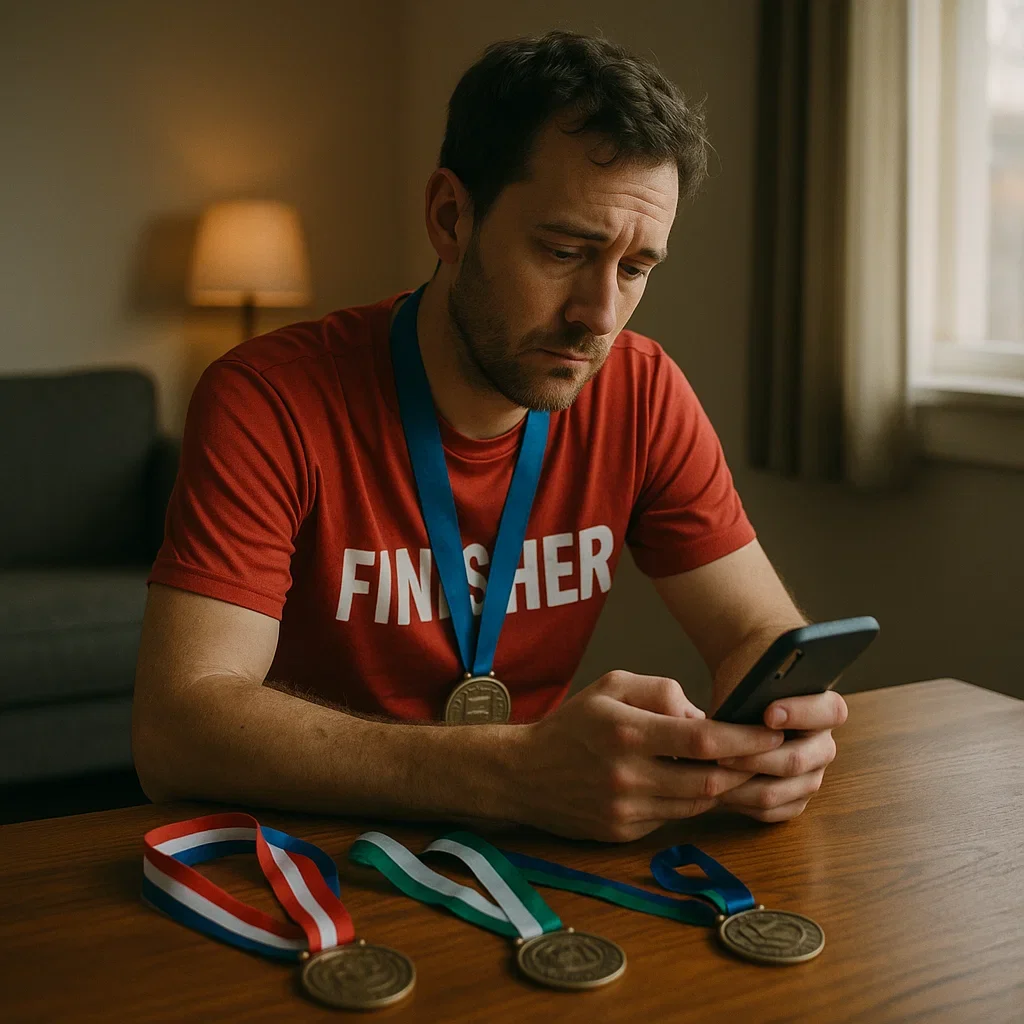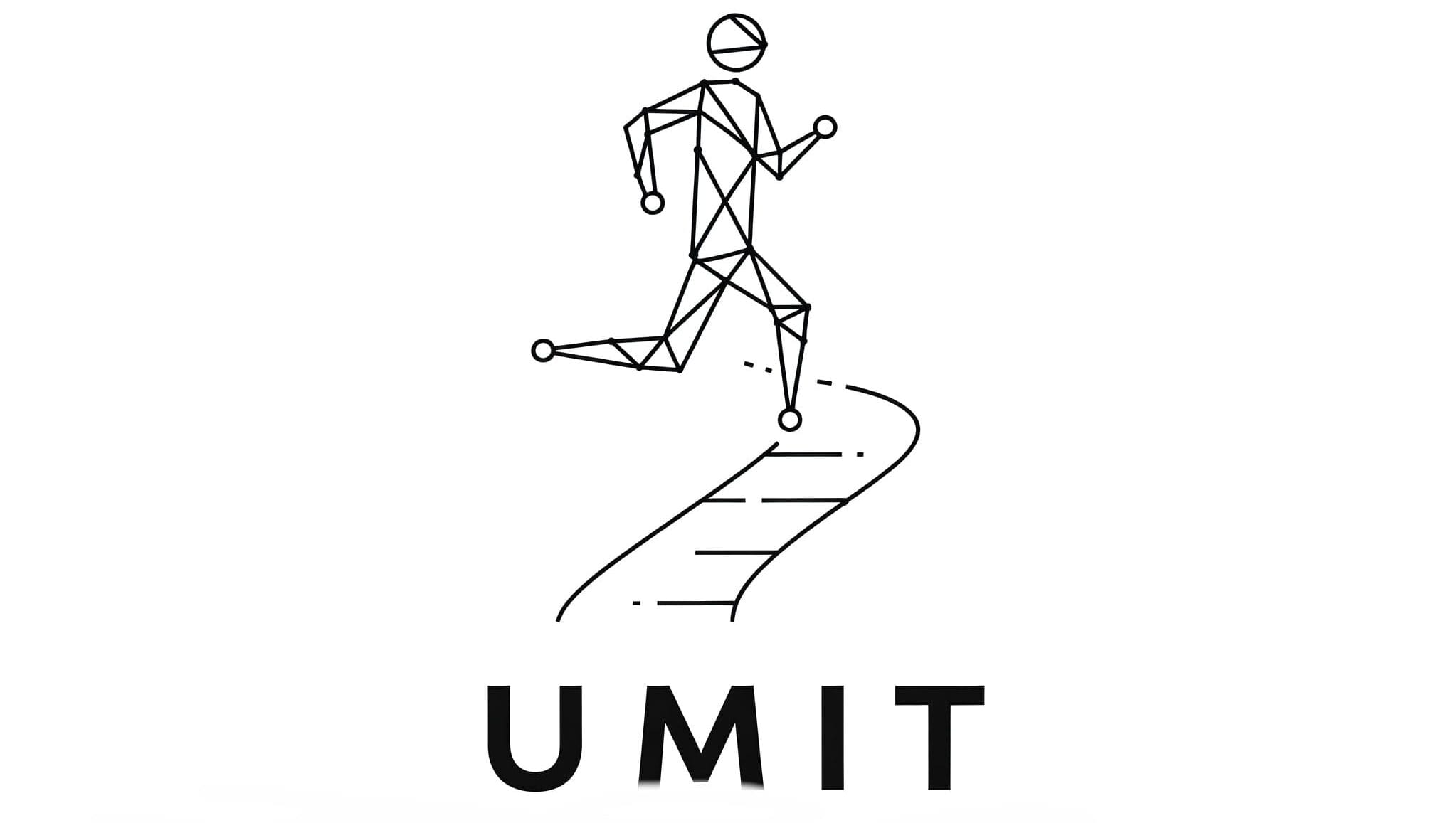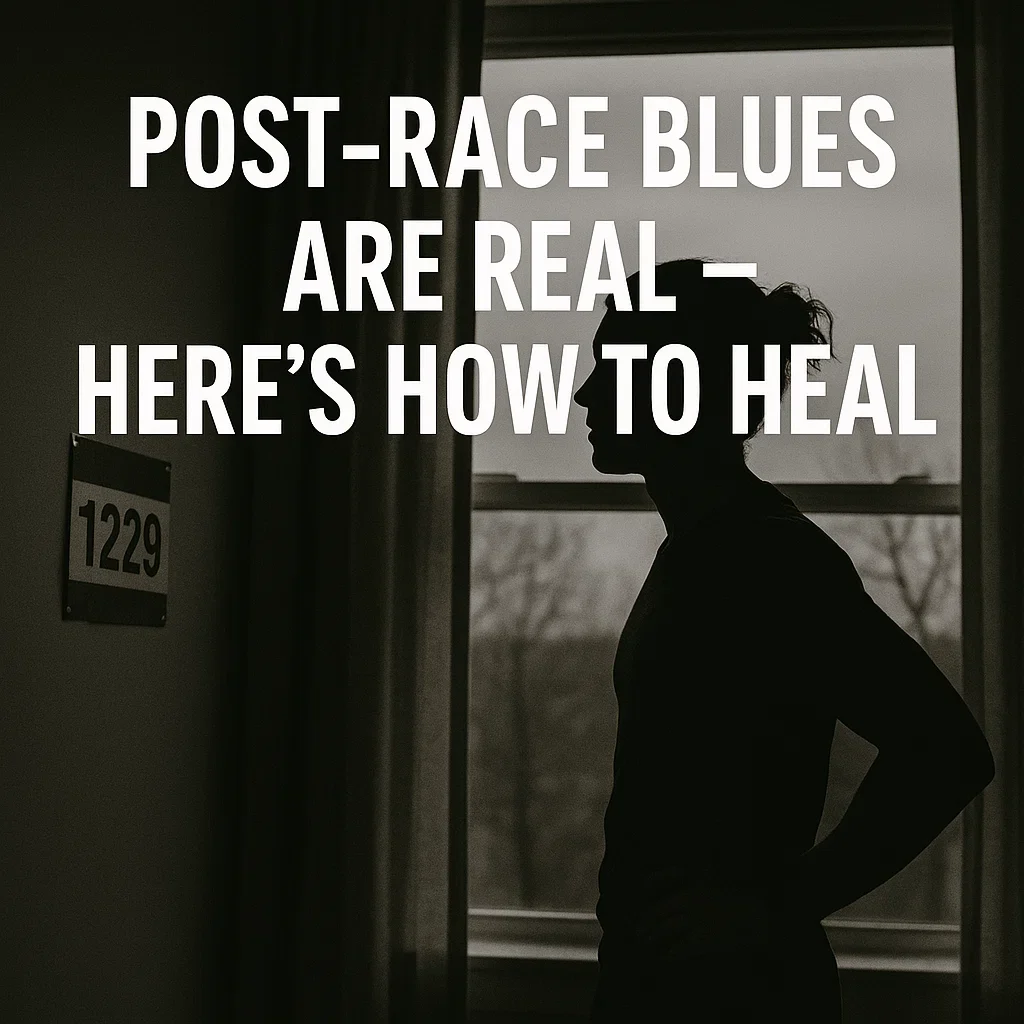🏁 After the Finish Line: Coping with Post-Ultramarathon Blues
Part 1: Why the Blues? Understanding the Emotional Crash After a High
You crossed the finish line. Maybe you cried. Maybe you smiled so wide your cheeks hurt. Maybe you collapsed into the arms of your crew or wandered off alone in stunned silence. You did it. You finished an ultramarathon.
And then… the silence.
A few days or weeks later, that electric post-race buzz begins to fade. 🎈You might feel tired, yes, but not just physically. There’s an emotional heaviness that creeps in — a sense of emptiness, confusion, or even sadness. You think:
“Why do I feel down after something so amazing?”
You’re not broken. You’re not ungrateful. You’re not alone. What you’re experiencing is commonly known in the endurance community as the post-ultramarathon blues — and it’s real.
🎢 The Physiology of a Post-Race Low
Big races like ultras flood your body with dopamine, endorphins, adrenaline, and cortisol — a complex cocktail of hormones that peak during long efforts and intense anticipation. Once the race is over and that hormonal flood recedes, a neurochemical vacuum follows.
You might suddenly experience:
- A lack of motivation to run again
- Difficulty sleeping despite exhaustion
- Mood swings or irritability
- Low energy and mild depression
- Feeling “lost” without a training goal
This isn’t just emotional—it’s biochemical. Your brain is adjusting to the lack of stimuli it was previously bathed in. 🧠
🧠 Psychology: The Purpose Void
Training for an ultra becomes a lifestyle. For months, your schedule, nutrition, conversations, and even identity revolve around preparing for race day. Once that’s removed, there’s often a deep void of purpose.
It’s a bit like retiring suddenly from a job you loved, or ending a relationship that gave you direction. Even success can leave you feeling unmoored.
“What now?”
“Was that it?”
“Shouldn’t I feel happier?”
These questions are natural and valid.
📊 Who Gets the Blues?
Contrary to what many assume, it’s not just those who had a bad race who feel this way. In fact, many runners report post-race depression even after:
- Setting a PR
- Completing their first 100-miler
- Finishing a lifelong goal like Western States or UTMB
The emotional crash often has nothing to do with how the race went — it’s about how your brain and identity recalibrate after such a monumental effort.
💬 Real Stories: You’re Not Alone
“I trained for 7 months for my 100K, and when I finished, I felt incredible. But two weeks later, I was just… flat. I didn’t want to run, eat, or even talk about the race. It took me by surprise.” – Jenna R., Ontario
“Finishing my first 50-miler was euphoric, but I didn’t expect to feel so aimless afterward. I kept checking the race website like I was hoping for a second finish line.” – Martin T., Colorado
Reading these stories shows one thing clearly: Post-ultra blues are part of the journey, not the end of it.
🌱 Why Understanding This Matters
Recognizing what’s happening is the first step to healing. By naming the experience, we take away its power to confuse or isolate us. Just like you trained your body to finish the race, you can now support your mind to recover from it.

🛏️ Part 2: Rest vs. Routine – Creating Structure After the Storm
After finishing a big race, everyone tells you the same thing:
“You’ve earned your rest.”
“Take time off.”
“Do absolutely nothing for a while.”
And they’re right — to a point. Your body needs time to recover. Your muscles, joints, tendons, and even your immune system take a hit during an ultramarathon. But here’s the twist:
⚠️ Too much rest, with no structure, can actually deepen the post-race blues.
🌀 The Identity Disruption
For weeks — or even months — you had a reason to get up early. You had a plan. A purpose. Suddenly waking up with no run on the calendar, no long effort on the weekend, no foam rolling to schedule around… can leave you feeling adrift.
That sense of daily rhythm isn’t just about productivity — it’s about identity. When runners say they feel “off” after a race, what they often mean is:
“I don’t feel like myself anymore.”
⚖️ Finding the Right Balance
So how do you rest without falling into a rut?
Here’s a simple 4-tier approach to rebuilding your daily rhythm without overcommitting:
1. 🧘♀️ Low-Intensity Movement
Think easy walks, gentle hikes, mobility work, or restorative yoga. These movements support recovery while keeping you mentally engaged.
2. 🎯 Mini-Missions
Start your day with a small goal. This could be organizing your race gear, journaling about your experience, or cooking a favorite post-race meal. These tasks add structure without pressure.
3. 🗓️ Micro-Routines
You don’t need a full training plan — just a light routine. Example:
- Morning: 10 min stretch
- Afternoon: 15 min walk or easy spin
- Evening: Race video/photo review or gratitude journaling
4. 🧩 Non-Running Hobbies
This is the perfect time to reconnect with forgotten passions: books, photography, art, gardening, music. Let them fill the space running used to occupy — temporarily.
🧠 Bonus Tip: Rename “Rest”
Call it something more meaningful than just rest:
- “Regeneration phase”
- “Post-race integration”
- “Recovery ritual week”
Language matters. These words shift your mindset from passivity to active recovery with intention.
💬 Runner Insight
“The week after my 100-miler, I took long walks each morning with my dog. No headphones, no watch. Just nature, fresh air, and letting my body recalibrate. It saved me emotionally.” – Lucas H., Washington
📌 Key Takeaway
Rest is essential — but routine is healing. A light structure helps you stay anchored as your body and mind catch up with your achievement.

🗺️ Part 3: Set a New Goal (But Not Too Soon)
One of the most natural instincts after an ultramarathon — especially after the blues begin creeping in — is to fill the void with something else.
“I need a new race on the calendar.”
“I’ll sign up for another 100-miler right now.”
“Let’s go bigger next time — 200 miles?”
⛔ But here’s the danger: Too much, too soon can backfire.
While it’s important to have something to look forward to, jumping immediately into another massive challenge can be a form of emotional avoidance. You’re not addressing the blues — you’re just postponing them.
🎯 Why We Crave a New Goal
After months of being goal-driven, the sudden lack of a finish line can feel disorienting. Setting a new target gives us:
- ✅ A sense of control
- ✅ Purpose and routine
- ✅ Motivation to get back on our feet
But this strategy only works if the timing is right and the goal is meaningful, not impulsive.
⏳ The Golden Window: 2 to 4 Weeks
Instead of rushing into something big, use the first few weeks after your ultra to:
- Reflect on your experience
- Journal about what went well and what didn’t
- Listen to your body’s signals (Are you really recovered?)
- Notice your emotional state without judgment
Then — once you’ve given yourself that space — explore light goal-setting ideas:
📝 Healthy Goal Ideas (Without Pressure)
Here are smart, low-stakes goals that gently reintroduce structure without emotional burnout:
🌼 1. “Joy Run” Project
Choose one beautiful, easy trail or road route near you and run it once a week — no watch, no goals, just joy.
🏃♀️ 2. Sign Up for a Short, Fun Race
Instead of another ultra, try a 10K trail race, a themed charity run, or a “Turkey Trot.” Low pressure, high fun.
🧭 3. Skill-Based Goals
Try something new:
- Improve your downhill technique
- Practice running with poles
- Start strength or mobility training
👥 4. Community Goals
Help a friend train for their first ultra. Volunteer at a local race. Join a group run. Sometimes the next goal isn’t about you — it’s about giving back.
❌ What Not to Do
- Don’t sign up for another 100-miler while still limping from the last one.
- Don’t assume another big goal will automatically fix your emotional low.
- Don’t confuse fatigue with lack of motivation.
Let healing lead the way — not FOMO.
🧠 Mental Trick: “The Next Finish Line Can Wait”
You will find your next big challenge. But give yourself time to want it for the right reasons — not just to escape discomfort.
“I took a month off from goal setting after my first 100-miler. When I came back, I realized I didn’t want to race — I wanted to adventure. So I mapped out a 3-day solo fastpacking trip instead. It was liberating.” – Caro D., France
📌 Key Takeaway
You don’t need a finish line to feel fulfilled. Let your next goal emerge from curiosity, not urgency.
🎉 Part 4: Celebrate and Reflect – Honoring the Journey Before Moving On
In the rush of post-race recovery, many ultrarunners skip one of the most healing and grounding steps:
Celebration. Reflection. Integration.
You trained for months. You sacrificed weekends, sleep, social plans, comfort. You battled through miles of doubt, pain, sweat, and maybe tears. And you finished. That deserves more than a medal and a photo.
Yet many runners feel uneasy truly owning their accomplishment. They downplay it:
“It was just a 50K…”
“I finished, but I didn’t hit my A-goal…”
“Others ran 100 miles — who am I to celebrate this?”
Let’s stop that right here. Your journey matters. Celebrating it is not indulgent — it’s essential.
📸 Create a Ritual of Celebration
Here are practical and creative ways to memorialize your ultra experience — not just to savor it, but to close the loop emotionally.
🖊️ 1. Write a Race Report
Not for others — for you. Document:
- What surprised you
- Where you struggled
- What you learned about yourself
- The support you received
- Your proudest moment (even if it was just not quitting)
Bonus: If shared, race reports help newer runners. It’s your way of giving back.
🖼️ 2. Create a Memory Wall or Album
Print your race photos. Frame your bib. Hang your medal with pride. Make it visible — a silent reminder of what you overcame.
🎧 3. Record a Voice Note to Yourself
Open your phone and just speak:
“Here’s how I feel right now, what I learned, and what I want to remember about this journey…”
Listening to it months later is a powerful way to reconnect with your motivation.
🪩 4. Throw a Post-Race Gathering
Invite your crew, training buddies, or even just a close friend. Share stories. Laugh. Toast to the chaos and courage of ultra life.
🫂 Why Celebration Helps with Post-Race Blues
Celebrating isn’t about ego. It’s about integration — mentally absorbing what just happened. If you skip this, your mind might rush ahead too quickly to “what’s next?” without acknowledging:
- The struggle you endured
- The growth you achieved
- The transformation you lived
Without that moment of closure, your brain may feel like the story is unfinished — leading to a lingering emotional hangover.
📦 Motivation Box
🧠 Ultra Memory Prompt:
“What moment during the race still gives you goosebumps? Write it down. Frame it. Or whisper it before your next starting line.”
🧠 Mind Hack: “Reflect Before You Reset”
Before opening your next training plan or race calendar, give your mind this gift:
✅ Rested body
✅ Recognized achievement
✅ Recorded journey
That’s the ultra triad of peace.
📌 Key Takeaway
Closure brings clarity. Celebration isn’t an afterthought — it’s the final chapter of your race story. Honor it.
👟 Part 5: Stay Social – Rebuild Connection Without Pressure
One of the most overlooked sources of post-ultra sadness isn’t the loss of the race…
…it’s the loss of the community that came with it.
For months, you were part of something. You shared long runs with friends, traded gear tips in forums, talked endlessly about pacing, socks, and drop bags. Your crew was on call. Your running buddies were texting check-ins. Strangers became teammates. You were part of a tribe.
And now?
Silence.
No group runs.
No race-day selfies.
No shared suffering.
It’s easy to feel lonely, even though you’re surrounded by people who love you.
🧭 Why Social Reconnection Matters
Ultrarunning is hard. But training for it isn’t something you do alone — emotionally or logistically. That shared experience builds bonds. Losing that temporary “race bubble” can feel like moving away from home.
Rebuilding that sense of belonging — even outside of training — is one of the fastest and kindest ways to lift post-race spirits.
🧩 No-Pressure Social Reboots
Here are low-stress, high-joy ways to stay plugged in to the ultrarunning world — without signing up for another 100-miler:
🤝 1. Volunteer at a Local Race
You’ll feel the race-day energy again, but from a totally different perspective. Handing out water, taping up blisters, or working a finish line brings surprising joy — and you’ll be inspired by others.
☕ 2. Organize a Social Shakeout
Invite your old training partners for an easy walk or jog followed by coffee or brunch. No watch, no plan — just connection.
📢 3. Join a Run Club (Without Racing)
Find a local running group or trail crew and go just for the vibes. Let people know you’re not training right now — just there to hang. You’ll be surprised how many others feel the same.
🧠 4. Mentor or Coach a New Runner
You know what it feels like to not know what a drop bag is. Pass that knowledge on. Helping others train for their first ultra can reignite your own passion.
🧠 Pro Tip: Redefine What “Community” Means
Even if you don’t feel like racing or training, you can still:
- Share your story online
- Comment on someone else’s race recap
- Host a podcast episode or blog post
- Create a “Post-Ultra Support Circle” in your local trail group
🎙️ Ultra culture thrives on storytelling. Be a storyteller — or a listener.
💬 Real Runner Quote
“I didn’t realize how much I missed the community until I went to volunteer at mile 78 of a 100-miler. Watching people fight for their finish — I cried more there than at my own race. It brought me back.” – Nathan B., Arizona
📌 Key Takeaway
You don’t need a bib number to belong. Your value to the ultrarunning world doesn’t expire when your race ends.

🧘 Part 6: Mindset Reset – Embracing the Emptiness and Moving Forward with Meaning
You trained. You finished. You rested. Maybe you even set a new goal. But… something still feels off.
That’s okay.
It’s not failure.
It’s not depression.
It’s not weakness.
It’s space.
And sometimes, space feels like sadness.
🧠 Understanding the Dip
After an emotional peak like an ultramarathon, the body and brain don’t just “bounce back.” There’s a recalibration period — and it can feel like grief.
- Grief for the journey that’s over
- Grief for the version of yourself you’ve outgrown
- Grief for the intensity you loved
And grief always asks us to pause — to feel before we move.
“But I thought I’d be elated after the finish line… why do I feel so hollow?”
Because you gave everything. You were all in. And now you’re between stories.
🌌 Reframing the Blues as Integration
Instead of seeing the blues as something to “fix,” try this:
🧩 What if the sadness is just your mind digesting the magnitude of what you did?
- You ran farther than most people ever will.
- You overcame more than you thought possible.
- You changed.
Let the blues be part of the journey — the spiritual cooldown lap of the soul.
🧠 Mental Reframes to Try
“I’m not broken. I’m between chapters.”
“This emptiness is where new meaning is born.”
“I finished something. Now I get to begin again.”
🔁 Spark Renewal from Within
Not with another race.
Not with more gear.
Not with pressure.
But with gentleness.
Try:
- Morning gratitude journaling (3 things you learned during your ultra)
- Forest bathing or trail walks in silence
- Meditative running: no GPS, no goals
- Re-reading your old training log and seeing how far you’ve come
💬 Real Story: From DNF to Meaning
“After I finished my first 100, I felt worse than after my DNF the year before. That confused me. But over time, I realized I was mourning the end of a beautiful chapter — not regretting anything. When I started coaching a friend through their first 50K, my joy came back. So did my fire.” – Allison C., Vermont
💡 Final Thought: This Too Is Part of the Race
The finish line isn’t the end of the journey.
It’s just the quiet, still checkpoint before the next horizon.
And if you sit with it long enough, you’ll hear it:
“Thank you. You did something extraordinary. Now rest. Then rise again.”
📌 Final Takeaway
You’re not lost. You’re evolving.
You’re not lazy. You’re processing.
You’re not done. You’re just getting started — again, from a deeper place.
✅ Call to Action
✨ If this post resonated with you, share it with another runner who might be struggling after their race.
💬 Leave a comment with your post-ultra experience. Let’s normalize this part of the journey.
🧠 FAQ – Coping with Post-Ultramarathon Blues
1. Is it normal to feel sad after finishing an ultramarathon?
2. How long do post-ultra blues usually last?
3. Is it the same as clinical depression?
4. Why do I feel worse after a successful race than after a DNF?
5. What should I do during the first week after the race?
6. Can planning another race help me get over the blues?
7. I feel unmotivated to run. Is that part of it?
8. Should I completely stop exercising?
9. How can I celebrate if I don’t like attention?
10. What are signs the blues are turning into depression?
11. Why do I miss my training routine so much?
12. Should I talk to others about my post-race feelings?
13. Does nutrition affect post-race mood?
14. Can volunteering at a race really help?
15. How can I avoid comparing myself to other runners?
16. Are there books or podcasts about this?
17. I feel ashamed of my sadness. What should I do?
18. What are good small goals to set during recovery?
19. How do I know when I’m ready to train again?
20. Can this experience make me a better runner?
🧪 Quiz: Are You Experiencing Post-Ultramarathon Blues?
❓ Questions
1️⃣ How do you feel emotionally in the week following your ultra?
A) Totally elated and proud
B) A bit off, but okay overall
C) Kind of lost or unmotivated
D) Low, moody, or emotionally flat
2️⃣ How motivated are you to run again right now?
A) Super excited, ready to go
B) I’ll run when I feel like it
C) Not really interested at the moment
D) I feel disconnected from running
3️⃣ What’s your current relationship with your training routine?
A) I’ve replaced it with something fun
B) I miss it a bit, but I’m fine
C) I feel a lack of structure
D) I feel adrift without it
4️⃣ Do you feel like you’ve celebrated your race properly?
A) Yes — with friends, journaling, and photos
B) Kind of, but not fully
C) Not really — I skipped over it
D) No — I went straight to “what’s next?”
5️⃣ How are you sleeping and eating post-race?
A) Great — I feel rested and nourished
B) Slight changes, nothing major
C) Trouble sleeping or emotional cravings
D) Sleep and appetite are totally off
6️⃣ What best describes your mood swings post-race?
A) None — I feel steady
B) Mild fluctuations
C) Unexpected sadness or irritability
D) Big emotional ups and downs
7️⃣ Have you spoken to anyone about your post-race emotions?
A) Yes — I’ve shared openly
B) I’ve hinted, but not in depth
C) I’ve kept it mostly to myself
D) No — I feel like no one would understand
8️⃣ Do you feel a sense of purpose right now?
A) Yes — I’ve found new goals or meaning
B) Somewhat — I’m still exploring
C) Not really — I feel a bit directionless
D) No — I feel empty or purposeless
9️⃣ Have you reconnected with your running community?
A) Yes — through volunteering or social runs
B) A bit — I’ve checked in here and there
C) Not much — I’ve kept to myself
D) Not at all — I’ve withdrawn completely
🔟 How do you see this phase you’re in?
A) A natural part of the journey
B) A weird but manageable dip
C) A confusing emotional crash
D) A dark place I can’t explain
✅ Answers Key & Interpretation
Count how many times you answered A, B, C, or D:
- Mostly A: 🎉 Resilient Rebounder – You’ve navigated the emotional terrain well and are finding healthy ways to recover.
- Mostly B: 🌤️ Balancing Act – You’re managing the transition, though a little extra reflection or community connection could help.
- Mostly C: 🌫️ Fog Walker – You’re likely experiencing post-race blues. Try reintroducing light structure and sharing your feelings.
- Mostly D: 🕳️ In the Hole – You may be in a deep emotional trough. Please consider reaching out to a therapist, coach, or close friend for support — you don’t have to go through this alone.
📚 Further Reading & Resources
-
🛌 The Ultimate Guide to Recovery After a 100-Mile Race
A deep dive into post-ultra physical and emotional recovery, including rest, sleep, active healing, and mindset. -
🧠 Ultramarathon Mental Preparation & Race Strategy
Learn how to train your mind before, during, and after long races — and why mental recovery is just as important. -
⚡ Fixing Problems in Ultramarathons
Covers the most common physical, mental, and nutrition-related issues ultra runners face, and how to overcome them. -
📅 Ultramarathon Training Plans & Methods
Thinking about your next race? This guide helps you plan sustainably while respecting recovery. -
🧘 Recovery Techniques for Ultrarunners
From foam rolling to mental reset routines — practical tools to support your comeback after a big race. -
🧬 Post-Race Psychological States in Endurance Athletes
A peer-reviewed study on emotional regulation and mood changes in endurance runners after major events. -
🎧 Science of Ultra – Podcast Archive
Weekly episodes that explore the physical and psychological aspects of ultra-endurance performance. -
🌲 Understanding the Post-Race Blues – Trail Runner Magazine
A runner-friendly article on why many athletes feel empty after finishing big races, and what to do about it. -
🧠 The Neuroscience of Marathon Recovery – Abbott
A clear breakdown of what happens in the brain after long races, and how to emotionally stabilize afterward. -
📘 Post-Race Blues – TrainingPeaks
Practical post-race advice from coaches and athletes on how to find joy and purpose after finishing.
After the Finish Line: Coping with Post-Ultramarathon Blues – PDF

About the Author
Lost Pace is an ultramarathon runner, shoe-tester and the founder of umit.net. Based year-round in Türkiye’s rugged Kaçkar Mountains, he has logged 10,000 + km of technical trail running and completed multiple 50 K–100 K ultras.
Blending mountain grit with data, Lost analyses power (CP 300 W), HRV and nutrition to craft evidence-backed training plans. He has co-written 260 + long-form guides on footwear science, recovery and endurance nutrition, and is a regular beta-tester of AI-driven coaching tools.
When he isn’t chasing PRs or testing midsoles, you’ll find him sharing peer-reviewed research in plain English to help runners train smarter, stay healthier and finish stronger.
Ultrarunner · Data geek · Vegan athlete

